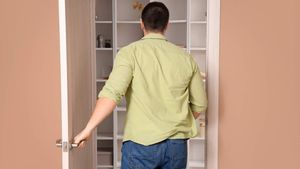An unprecedented outbreak of HIV continues to sweep across southeastern Indiana, caused primarily by intravenous drug users sharing needles.
The latest tally shows that 68 people have been infected in the past month.
The crisis is prompting a Republican state lawmaker to introduce legislation late this afternoon to create a needle exchange program.
Meanwhile, a team from the Centers for Disease Control and Prevention (CDC) arrived in Indiana on Monday to help with the outbreak. CDC officials referred all questions on the situation to Indiana officials.
In a short news release issued March 20, the Indiana State Department of Health confirmed 55 cases of HIV since the outbreak was first announced in February, along with 13 additional “preliminary positive” cases.
The press release offered little other information on the outbreak other than to say users were injecting the prescription painkiller Opana.
State officials did not respond Wednesday to specific questions posed by Healthline related to the outbreak. A media coordinator in the state’s health office initially expressed confusion about the media request. He later acknowledged receipt of the additional information he needed but didn’t respond again.
The outbreak affects a largely white, rural area in the southeastern section of the state. It includes Scott County and the nearby vicinity.
Indiana long has been criticized by HIV advocates for not having a needle exchange program and for having tough HIV criminalization laws that critics say discourage people from getting tested.
So Many Questions, Very Few Answers
Indiana Rep. Ed Clere, a New Albany Republican, will introduce an amendment to a bill today to create a needle exchange.
“My focus is on the crisis in southeastern Indiana and what the legislature can do to help mitigate it,” Clere told Healthline. “Facilitating needle exchange is an obvious opportunity to slow the spread of HIV there, and to prevent additional outbreaks in other areas of the state. This outbreak has highlighted the lack of HIV/AIDS infrastructure in Indiana, including a widespread lack of available testing, and I expect a number of legislators will be interested in addressing that and other deficiencies and opportunities going forward.”
Healthline posed several questions to Indiana state health officials, including:
When was the department of health (county and state) first made aware of the initial infection? How quickly did the magnitude of the problem become clear?
Is there any indication as to how this has spread so quickly? Was there a situation where several people shared needles and/or had unprotected sex in the same setting? Do you have names of others who potentially are infected, and are you reaching out to them to prevent further transmissions?
Any idea whether any of these infections may lead to criminal cases?
These questions remain unanswered.
The health department explained in its news release that it has now launched a campaign called “You’re Not Alone” focusing on drug abuse, safe sex, needle disposal and HIV testing and treatment. The three-month campaign will include billboards placed along Interstate 65 in southeastern Indiana as well as a social media campaign.
Despite all of this, a needle exchange is what is needed most, Clere maintains.
“Needle exchange is a proven and effective harm reduction measure. It isn’t a new concept,” he said. “To the contrary, needle exchange programs across the country have been protecting public health and saving lives for more than two decades.”
Former Drug User Turned Professor Speaks Out
Carrie Elizabeth Foote is a professor of sociology at Indiana University. She also is a former intravenous drug user with HIV. In a statement to Healthline, she said she suspects the outbreak in Indiana isn’t going to stop there.
“With prescription drug use the major drug problem in the U.S. now, and most of these folks injecting, all it takes is one positive person, who does not know their status, in a concurrent unsafe needle sharing network to rapidly spread HIV,” Foote said. “It’s relatively easy to get clean needles in Indiana as they do not require a prescription. That said, one must sign a register when purchasing, which can deter folks.”
Foote said Indiana’s criminalization laws and lack of literacy about HIV makes the current situation even more precarious.
“The needle sharing/sex laws are linked to nondisclosure, so it’s only after people know their status that one could be potentially criminalized, so folks who do not know their status are not at risk,” Foote said.
Despite the tough laws, Foote said she has not heard of any injection drug use prosecutions ever occurring in Indiana, or in any other U.S. state.
She said it’s important to remember that some people among the 55 confirmed infections may already have been infected prior to the testing that occurred during the past month. But she added, “There does seem to be a network effect here for the rapid spread of HIV.”
HIV, Opana Give Outbreak a Unique Footprint
Kent Runyon is executive director of Novus Medical Detox Center in New Port Richey, Florida. He said he is familiar with southeastern Indiana and it’s possible the infections could be caused by a lack of education about how HIV is transmitted.
“They obviously knew each other, thought they trusted each other, and had this incredible comfortable level that needle sharers share,” he told Healthline. “This really speaks again to the desperation of those suffering from addiction.”
He said to have such a large number of HIV infections in a small geographic area all in such a short time is unprecedented. Most injection drug users treated at Novus have hepatitis C infections, if anything. HIV is far less common.
He said the HIV infections and Opana use serve as a footprint to the recent outbreak. He said other outbreaks typically manifest as an uptick in overdoses at local emergency rooms. He said the outbreak is “completely out of the norm” for small health departments in southeastern Indiana.
“I’m sure this has caught them completely off guard,” he said.
Foote told Healthline she has a friend at the health department who explained they are working around the clock on issues related to the outbreak.
“There are some really caring folks in the Indiana State Department of Health HIV/STD division doing good work despite working in the context of draconic policies,” she said. “And then there are some who unfortunately support such policies and think they are a good thing.”
Runyon said he hopes local news reporters in that community will dig deep for answers as to what actually caused the epidemic.
This article is reprinted with permission from Healthline.








































































